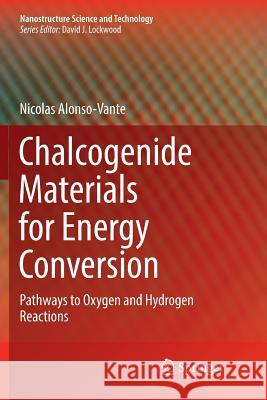Chalcogenide Materials for Energy Conversion: Pathways to Oxygen and Hydrogen Reactions » książka
topmenu
Chalcogenide Materials for Energy Conversion: Pathways to Oxygen and Hydrogen Reactions
ISBN-13: 9783030078157 / Angielski / Miękka / 2019 / 226 str.
Kategorie BISAC:
Wydawca:
Springer
Seria wydawnicza:
Język:
Angielski
ISBN-13:
9783030078157
Rok wydania:
2019
Wydanie:
Softcover Repri
Numer serii:
000264108
Ilość stron:
226
Waga:
0.34 kg
Wymiary:
23.39 x 15.6 x 1.3
Oprawa:
Miękka
Wolumenów:
01
Dodatkowe informacje:
Wydanie ilustrowane











